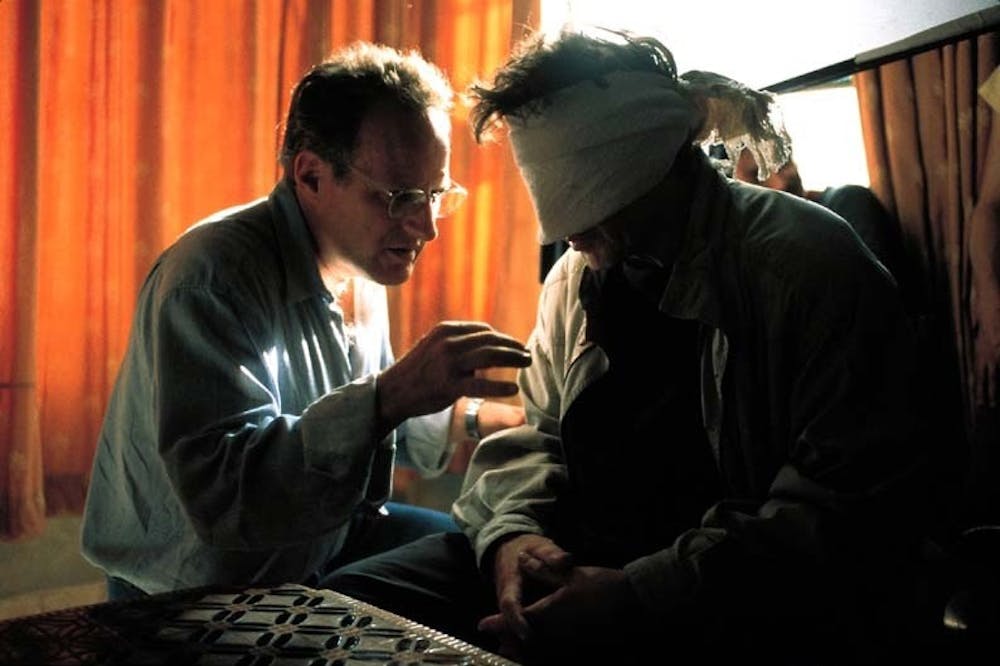There is perhaps no more vital film for our time than Michael Mann’s 1999 drama “The Insider,” a film as much about a team of CBS "60 Minutes" journalists as it is about the vitality of truth and the cost of doing the right thing.
Adapted from the Vanity Fair article "The Man Who Knew Too Much," about Big Tobacco whistleblower Jeffrey Wigand’s exposé of the industry’s knowledge of tobacco’s health risks, “The Insider” is as taut and viscerally compelling as anything in Mann’s oeuvre.
And in a day and age where Christine Blasey Ford, who came forward this week with sexual assault allegations against Supreme Court Nominee Brett Kavanaugh, did so knowing full well it would jeopardize her livelihood, her safety and her public image, “The Insider” is more than just a thrilling true story drama; it’s a chilling and haunting reminder that the silence breaker is the truest hero.
It’s so excellent because, like the best of Mann’s works, it’s so deeply concerned with the struggles of the common man. He’s both a deeply empathetic filmmaker and a patient one, willing to explore the personal toils of his characters and foster for the viewer an understanding that runs deeper than surface level. His works are soulful, poetic and meditative — he deifies the common man, but also understands him, finds what makes him fundamentally human and reduces him to that so we may understand him.
“The Insider” is as much a film about investigative journalism as it is about the struggles of fathers and the weight of its characters’ ethical dilemmas against their personal lives.
That results in a number of haunting, even frightening sequences, perhaps the most stunning of which comes late in the film as Al Pacino’s character, Lowell Bergman, attempts to talk Wigand down from suicide. Both actors’ performances are exceptional, lending the scene a gravitas and honesty that is at once heartrending and devastating, but even more effective is Mann’s filmmaking.
As Wigand sits alone in a hotel room, contemplating the losses he’s sustained in his effort to tell the truth, the image morphs into a domestic scene, grounding the viewer firmly in the character’s perspective and visually juxtaposing a dissonance between worlds.
“The Insider” is a triumphant film, but also a tragic one. That dissonance between worlds becomes the core turmoil of the film, and a source of the characters’ suffering as they fight to tell the truth.
Mann front-loads the film with scenes of Wigand’s home life, asserting him as fatherly and compassionate, and back-loads it with reminders that such things won’t survive the hero’s quest to bring out the truth. It’s a mournful film, shot with a camera that lingers on its characters’ sorrows and follows them – literally, it glides through the film’s largely domestic mise-en-scène like a member of the film – through every trepidation and scored with orchestral compositions that exude melancholy and bleed sorrow.
Mann’s film was released in 1999, but its themes are timeless. It’s about journalism and the power of truth, but also the deeply heroic act of telling the truth and the unfathomable courage it takes to do the right thing when only the bad people ever seem to win.
As Pacino says in one of the film’s – and perhaps cinema as a whole’s – greatest scenes, “I’m running out of heroes, man.” In a worse film, and perhaps in any other director’s rendering of this story, the journalist might be the hero, but to Mann, it’s the ordinary person doing the honorable thing. The journalists are just there to listen.




